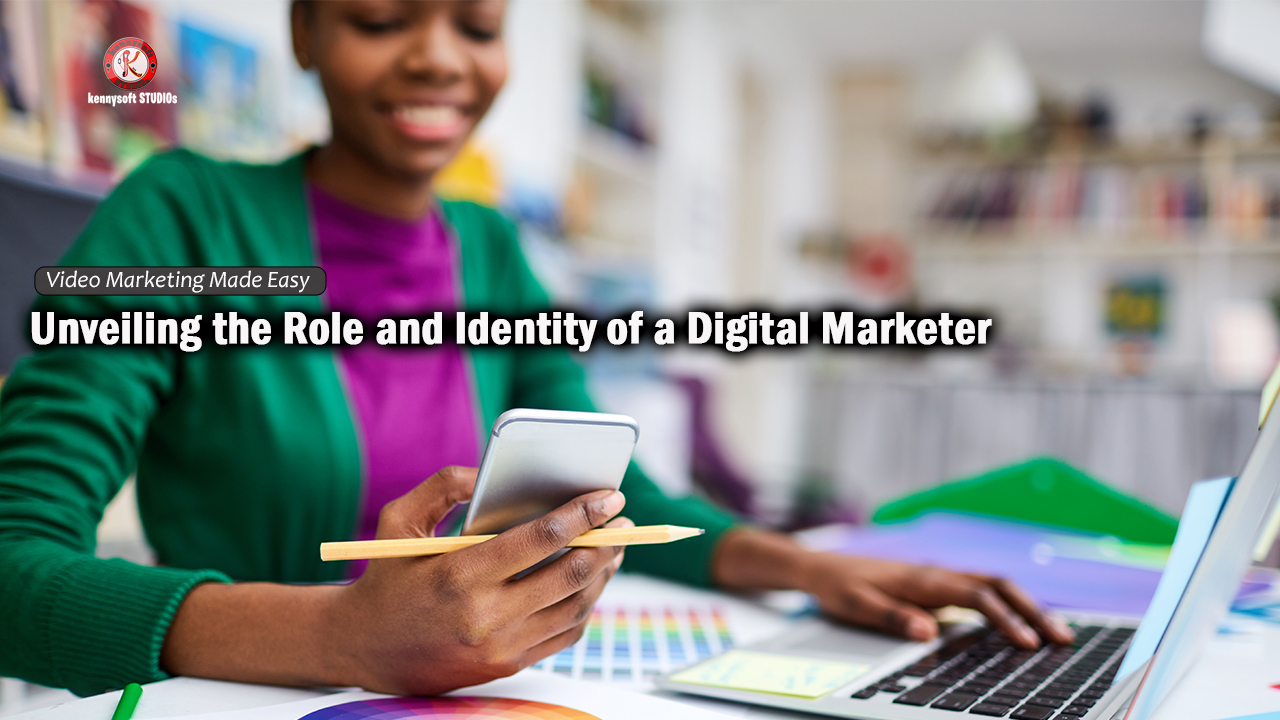A digital marketer is a person who is responsible for developing, implementing, and managing marketing campaigns that promote a company’s products or services. He is a professional who combine creativity, analytical skills, and technological proficiency to connect brands with their target audiences across various digital platforms. Some of the digital platforms include: company websites, social media networks such as Facebook, YouTube, and Instagram, Search engines including Google and Bing, Email marketing, Mobile apps like TikTok and WhatsApp, Online display ads, and Blogs.
Uncovering the Role and Identity of a Digital Marketer
Characteristics of a Digital Marketer
A digital marketer must possess certain characteristics which will enable him to be successful in his career/field. Some defining characteristics of a digital marketer includes:
1. Lifelong Learner
Digital marketers are committed to continuous learning. They stay updated with industry trends, algorithm changes, and emerging technologies to remain effective in their roles.
2. Problem Solving
Digital marketers are skilful problem solvers. They analyse challenges, identify opportunities, and develop creative solutions to meet marketing objectives.
3. Brand Advocate
They are brand advocates who understand the importance of building and maintaining a positive brand image. They ensure that all marketing efforts align with the brand’s values and mission.
4. Customer-Centric
Digital marketers prioritize the needs and preferences of their target audience. They create personalized experiences that resonate with customers and foster lasting relationships.
Skills and Qualities of a Digital Marketer
Some skills and qualities a person must possess so as to succeed in the role of a digital marketer includes:
- Analytical Thinking skills
Interpreting data to inform strategy is a vital skill. Analysing data and interpreting metrics is crucial for optimizing campaigns and achieving marketing goals. Digital marketers need strong analytical skills to make data-driven decisions, use measurable analytics to identify weaknesses and find ways to improve performance across various channels.
- Creativity:
Digital marketers must think creatively to develop innovative and engaging content that captures the audience’s attention and stands out in a crowded digital landscape. It entails blending artistic vision with marketing acumen to create compelling campaigns and content.
- Adaptability:
Digital marketers must be adaptable and open to learning new tools, trends, and technologies to stay ahead. The digital space is evolving and changing rapidly, requiring constant learning and flexibility.
- Technical Proficiency
This entails familiarity with various digital tools and platforms is crucial. Digital marketers should be proficient in using various digital marketing tools and platforms, such as content management systems (CMS), email marketing software, and social media management tools.
- Communication Skills
Effective communication is key to conveying brand messages, collaborating with team members, and engaging with audiences. Digital marketers need strong written and verbal communication skills. Conveying ideas effectively across different mediums is key.
Key Roles and Responsibilities
Specific roles and responsibilities of a digital marketer includes;
- Strategy Development: Digital marketers develop comprehensive online marketing strategies aligned with business goals. This involves analysing market trends, consumer behaviour, and competitive prospect to formulate effective strategies
- Content Creation: They develop content strategies and produce engaging content for websites, social media, emails, and other digital channels.
- SEO Optimization: Improving website visibility in search engine results is a core task.
- Social Media Management: Managing social media accounts, building and maintaining a strong social media presence is essential.
- Data Analysis: Digital marketers use analytics tools to measure campaign performance and make data-driven decisions.
- Paid Advertising: Managing pay-per-click campaigns and social media ads to drive traffic and conversions.
- Email Marketing: Creating and optimizing email campaigns to nurture leads and retain customers.
Conclusion
As businesses increasingly prioritize their online presence, the demand for skilled digital marketers continues to grow, making it an exciting and dynamic career path in the modern economy.
Whether you’re a seasoned professional or an aspiring digital marketer, understanding the role and identity of a digital marketer is essential for thriving in this dynamic and ever-changing career path.
Remember, as digital marketing continues to evolve, committing to lifelong learning, embracing innovation and staying attuned with industry trends, consumer behaviour, and emerging technologies helps a digital marketer to remain effective in their role, expand their knowledge/skills and unlock new opportunities for growth.
